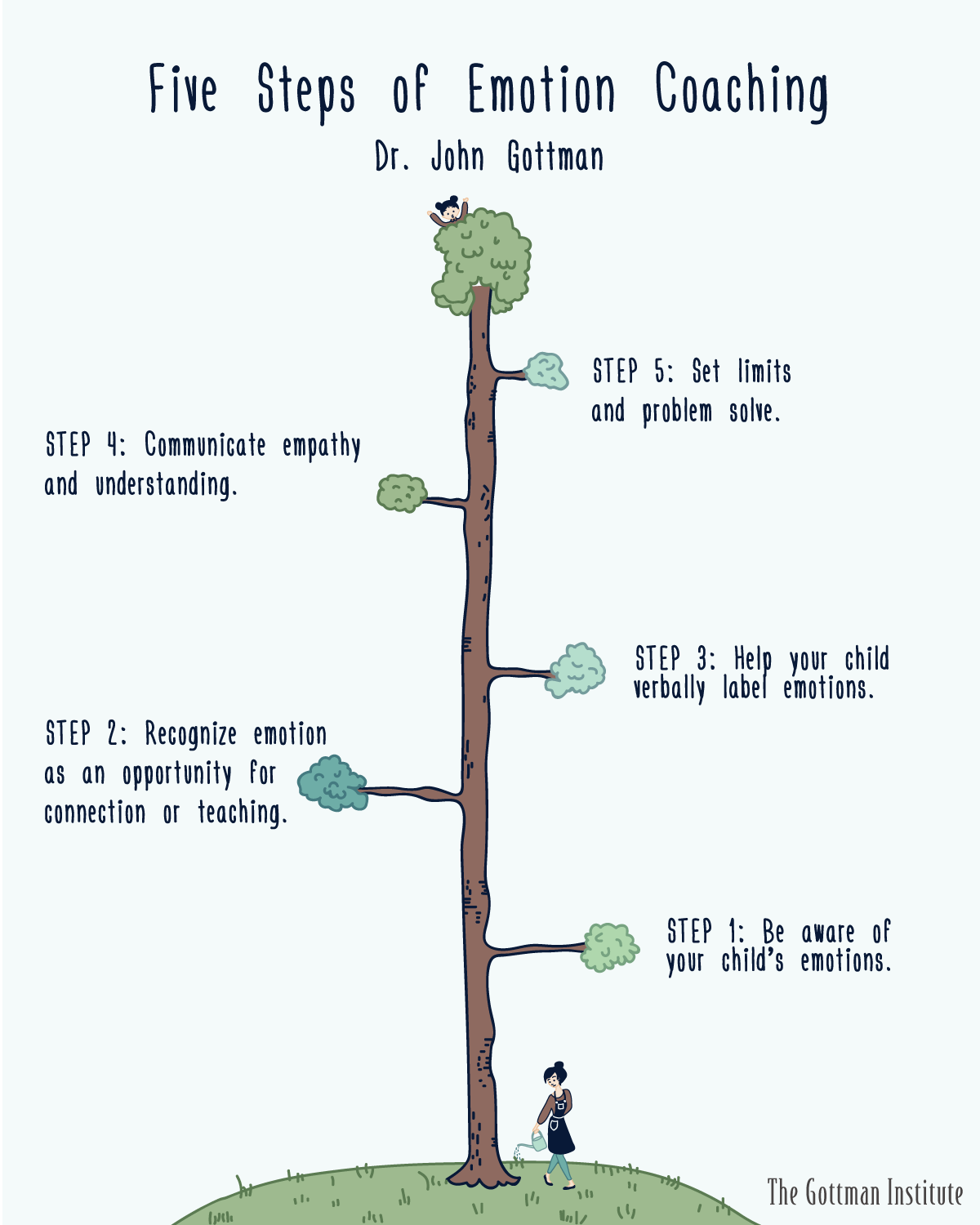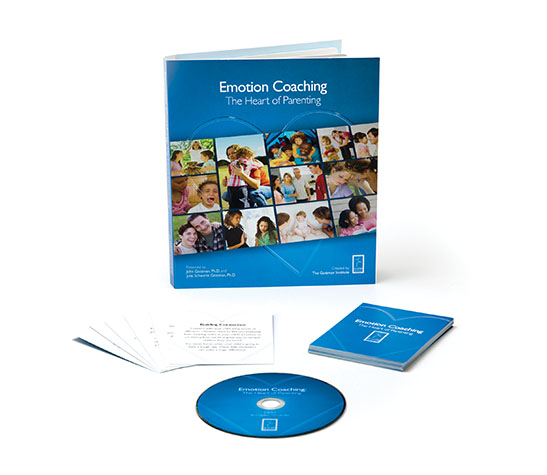When emotions run high, people do and say things they normally would not. When you’re a young child, this is what you do all the time.
Emotional self-regulation, a large component of emotional intelligence, is the ability to manage one’s experience and expression of emotions. With practice, children improve their capacity for emotional self-regulation. By age four, most children start to use strategies to eliminate disturbing external stimuli. In other words, they cover their eyes when they’re scared and plug their ears when they hear a loud noise.
It’s not until age 10 that children consistently use more complex strategies for emotional self-regulation. These strategies can be broken down into two simplistic categories: those that attempt to solve the problem and those that attempt to tolerate the emotion.
When a child can make a change to address a problem, they engage in problem-focused coping by identifying the trouble and making a plan for dealing with it. When they deem the problem unsolvable, they engage in emotion-focused coping by working to tolerate and control distress.
All of these strategies are a part of emotional intelligence. Emotional intelligence encompasses awareness, understanding, and the ability to express and manage one’s emotions.
While the world has been focused on academic achievement in childhood, emotional self-regulation has been largely ignored. This is a poor strategy, given that research suggests emotional intelligence is twice as strong a predictor as IQ of later success.
Self-control, one piece of emotional intelligence, is particularly important in predicting achievement in children. Children who are able to inhibit impulses (often driven by emotions) and avoid distractions are able to engage in more prosocial behaviors and accomplish their goals.
A particularly powerful study tested school-aged children on self-control and conducted follow-up studies on those children in their 30s. The study demonstrated that self-control predicted success better than IQ, socioeconomic status, and family environment. Those children high in self-control were also healthier, made more money, and were less likely to have criminal records or trouble with alcohol.
Feelings serve a purpose
The first piece of emotional intelligence is awareness and understanding of emotions. We have to understand and accept before we can control and express our emotions. Emotions are not an inconvenience, but rather a piece of human evolution that serves a purpose. The discrete theory of emotions suggests that each of our primary emotions have evolved to serve distinct purposes and motivate our behavior.
Sadness is an emotion uniquely capable of slowing us down, both in thought and motor activity. This can allow us the opportunity to reflect on the source of our emotional upset and take a closer look at the antecedents of it.
In contrast, anger speeds us up, mobilizing intense energy and sending blood to our extremities. While evolutionary, this geared us up for a fight; in modern times, it allows the sustained energy for a fight of a different nature. Anger cues us that our rights have been violated and helps us mobilize to protect against future threats.
Our emotions are to be respected and reflected upon. This includes our children’s intense emotions at seemingly non-intense situations. My daughter experiences intense anger when she is not able to do something she had previously accomplished, such as buckling her car seat independently.
In their recent policy statement, the American Academy of Pediatrics advised parents not use technology as a way to calm or pacify negative emotions in their child. Specifically, they expressed “concern that using media as strategy to calm could lead to problems with limit setting or the inability of children to develop their own emotion regulation.”
Basically, children need the experience of feeling these emotions and practice tolerating them to develop self-control and emotional intelligence.
Increasing your child’s emotional intelligence
Because emotional intelligence appears to be such a strong predictor of success, researchers have looked at how caregivers can encourage its development. Specifically, Dr. John Gottman observed how parents respond to their children’s emotions in an effort to understand how emotional intelligence develops. He found that parents respond to children’s emotions one of four possible ways.
- Dismissing parents see children’s emotions as unimportant and attempt to eliminate them quickly, often through the use of distraction.
- Disapproving parents see negative emotions as something to be squashed, usually through punishment.
- Laissez-faire parents accept all emotions from child, but fail to help the child solve problems or put limits on appropriate behaviors.
- Emotion coaching parents value negative emotions, are not impatient with a child’s expression of them, and use emotional experience as an opportunity for bonding by offering guidance through labeling emotions and problem-solving the issue at hand.
Dr. Gottman’s research shows children of parents who emotion coach are physically healthier, do better in school, and get along better with friends. Emotion coaching parents followed five basic steps to help their children with emotions. Sometimes this can take a great deal of time.
Dr. Gottman found that emotion coaching parents only followed all five steps 20-25% of the time, suggesting there is no need for guilt as no parent can complete this process all the time.
Practicing the five steps to emotion coaching
Step 1: Be aware of your child’s emotions.
Parents who emotion coach are aware of their own feelings and sensitive to the emotions present in their children. They do not require their child to amp up their emotional expression for the feelings to be acknowledged.

Step 2: See emotions as an opportunity for connection and teaching.
Children’s emotions are not an inconvenience or a challenge. They are an opportunity to connect with your child and coach them through a challenging feeling.
Step 3: Listen and validate the feelings.
Give your child your full attention while you listen to their emotional expression. Reflect back what you hear, thus telling your child you understand what they’re seeing and experiencing.
Step 4: Label their emotions.
After you have fully listened, help your child develop an awareness of and vocabulary for their emotional expression.
Step 5: Help your child problem-solve with limits.
All emotions are acceptable but all behaviors are not. Help your child cope with his or her emotions by developing problem-solving skills. Limit the expression to appropriate behaviors. This involves helping your child set goals and generating solutions to reach those goals.
Sometimes the steps of emotion coaching happen quickly. Other times, these steps may take a great deal of time. Patience is key. If the problem is a big one, all five steps don’t have to be completed in one interaction.
This article was originally published by Meghan Owenz for Parent.co.
The Marriage Minute is a new email newsletter from The Gottman Institute that will improve your marriage in 60 seconds or less. Over 40 years of research with thousands of couples has proven a simple fact: small things often can create big changes over time. Got a minute? Sign up below.








